When the winter rolls in, we all want to reach for foods that help fuel our bodies now more than ever. In contrast, winter tends to bring about less activity than summer. The drop in temperatures actually increases our metabolic needs. Unfortunately, one of the obvious downsides to the winter season is that the variety of foods we are used to during the warmer months is nowhere to be found. We are in unless you live in areas that force plants to grow regardless of the season. For the record, just like in all aspects of life, there is a reason for every season, and it is important to eat seasonally.
The Reason For The Season
Did you know that each season brings with it a different selection of fruits and vegetables? Each of these foods actually helps us reap each season’s benefits. For example, during the winter months foods are higher in complex carbs and fiber. This is due to the fact that food was harder to find during winter months and, as such, had to keep you feeling full longer. When we choose to eat seasonally, it allows our bodies to go through similar changes that our environment experiences during each season. These foods are actually high concentrations of the vitamins and minerals we need to get through each season with an added advantage. For example, winter foods are high in vitamin C and zinc to keep your immune system up. In comparison, each of the winter months has its own star players. The following are my favorite top five vegetables available in January.
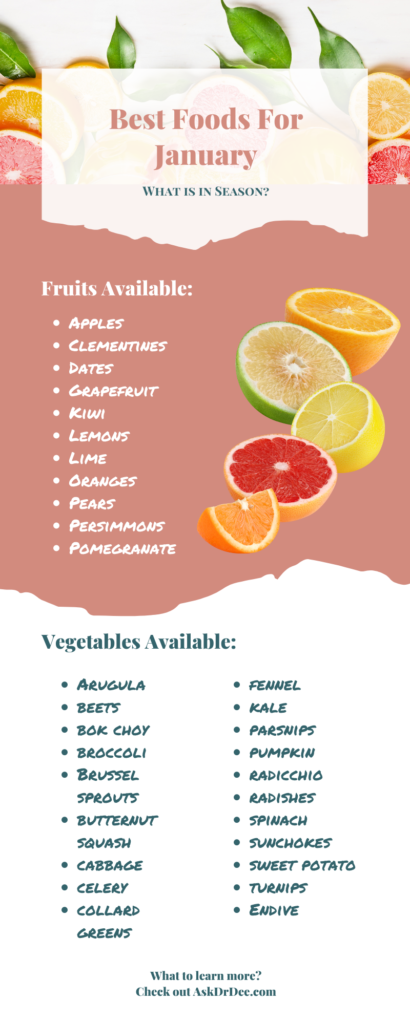
All About Arugula
Arugula health benefits include protecting your heart, could help control weight, improving eye health, reducing cancer risk, helping with digestion, helping control blood pressure, helping prevent diabetes, delivering vitamin K and calcium for healthy bones, and is good for your skin, may add years to your life, enhance athletic performance, acts as a great detoxifier, helps reduce inflammation in the body, and may improve cognitive function. Arugula also contains an impressive amount of Vitamin C, Vitamin A, Vitamin K, and folate. Talking about minerals, you’ll get plenty of calcium, potassium, magnesium, phosphorous, zinc, and iron from Arugula.
Arugula contains a good amount of vitamin C, vitamin K, and folate – heart-friendly nutrients. Vitamin K, in turn, boosts heart health by pushing calcium into the bones instead of flushing it into your arteries and blocking circulation. Folate is essential for maintaining homocysteine levels. Pregnancy is when expecting mothers should eat more iron, folate, calcium, protein, vitamins A, B, and C, magnesium, and zinc. All these nutrients can be found in a good dose of Arugula. The arugula contains plenty of calcium and magnesium – the essential minerals that dilate blood vessels and maintain healthy blood pressure levels.
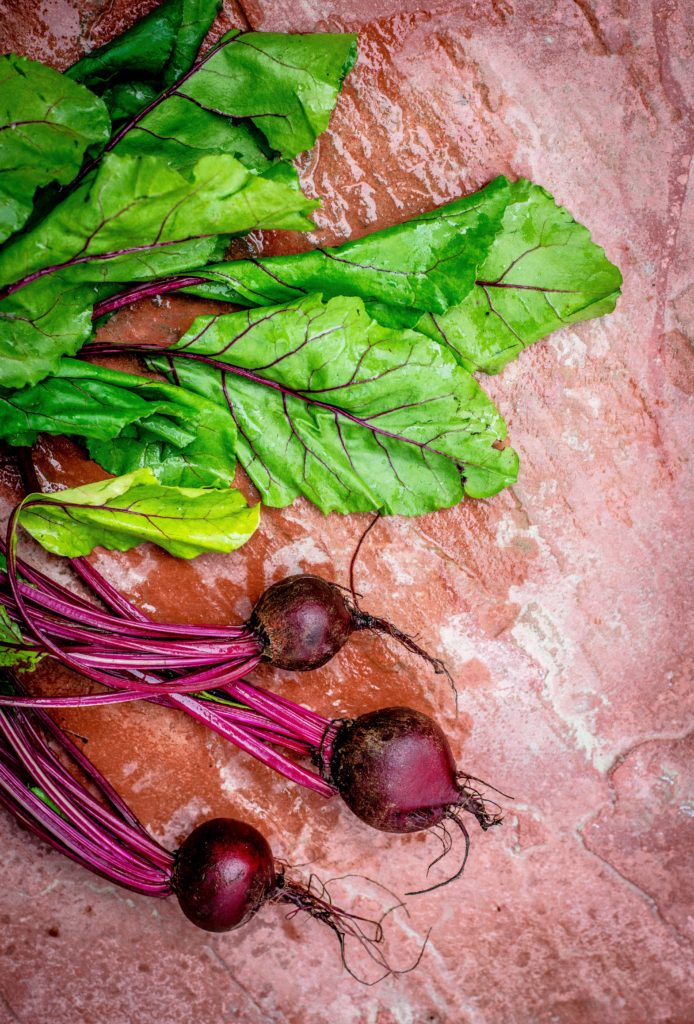
Beautiful Beets
Beets get their jewel-like hue from betalains, a natural plant pigment that boosts health. They are high in antioxidant compounds that protect your cells from damage and may lower the risk of heart disease, cancer, or other diseases. Betalains are also high in anti-inflammatory properties. Beets are high in fiber. Fiber can help you control blood sugar levels, maintain a healthy weight, lower cholesterol and stay regular. Beets contain nitrates, which the body converts into nitric oxide. Nitric oxide is a vasodilator that relaxes and widens blood vessels, which can lower blood pressure. Not to mention reduce sore muscles and increase endurance levels. They are a good source of folate, a B vitamin that’s especially important during pregnancy. Also a good source of potassium, magnesium, and vitamin C.
Beets are rich in water content and fiber. This can help keep you fuller, longer, and better hydrated. The high fiber and water content of beets also help with digestion. Fiber can also help prevent digestive conditions such as colon cancer, gastroesophageal reflux disease, and diverticulitis. Beetroot has antioxidant and anti-inflammatory properties, making it another natural detoxifying agent. It is a good source of vitamin A, vitamin C, vitamin B6, and ions such as magnesium, phosphorus, zinc, and copper, all of which are important for bodily processes. In addition, the methionine and glycine present in beet juice prevent the build-up of fat cells. Lycopene, another component of beet juice, keeps your skin firm and prevents premature aging.
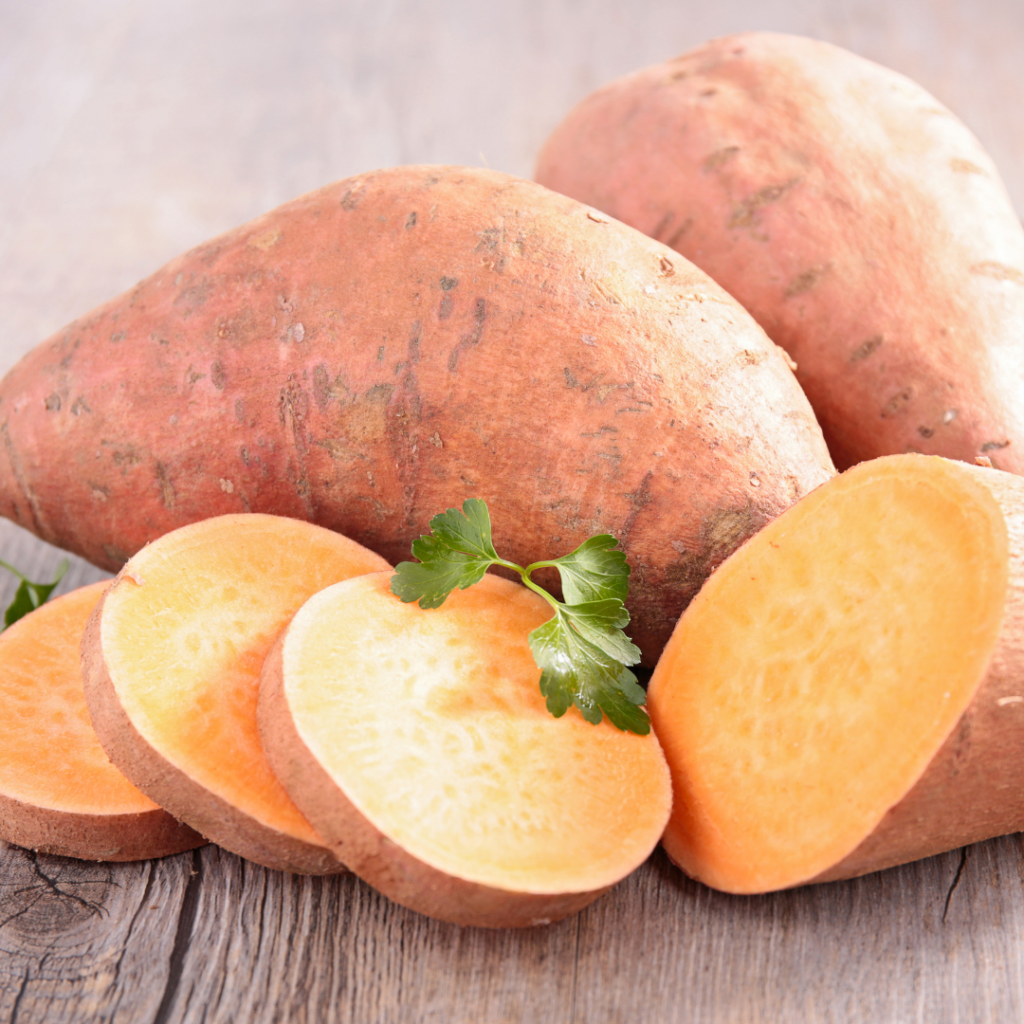
Saving Sweet Potatoes
Sweet potatoes are a natural and abundant source of beta-carotene. Vitamin A. Vitamin A is essential in helping the body fight off infections and remain resistant to further infections. Sweet potatoes contain essential fibers and magnesium that are critical in preventing and managing diabetes. Vegetables also have a moderately low glycemic index that also aids in the regulation of blood glucose levels. Sweet potatoes are an important source of magnesium, whose deficiency has been linked to a higher risk of depression, stress, and anxiety. Thus, sweet potatoes can replenish the body’s magnesium levels and help alleviate the symptoms of depression and anxiety-related behaviors in individuals.
The presence of anthocyanin and choline in sweet potatoes makes vegetables an essential dietary source for preventing and reducing chronic inflammation in the body. Sweet potatoes contain beta-carotene, a carotenoid, which is essential in protecting men from developing prostate cancer. In addition, extracts from different parts of sweet potatoes have been shown to accelerate the death of breast, gastric, colorectal, and prostate cancers, limiting the growth and spread of these cancers. Studies on the extracts from sweet potatoes have shown that the vegetable has chemicals that can help heal wounds and ulcers in the stomach. Thus, dietary consumption of sweet potatoes can be an effective treatment plan against major types of ulcers, including ethanol and aspirin-induced ulcers.
The fibers, anthocyanin, polyphenols, and high radical scavenging activity contained in sweet potatoes are all important in the fight against cardiovascular diseases. Sweet potatoes and their extracts possess antimicrobial activities, which can be used to prevent and treat a variety of bacterial pathogens and infections. Sweet potatoes contain high levels of vitamins A, C, and E, all of which are useful in promoting proper skin and hair health. These vitamins are useful in repairing skin that is damaged due to exposure to UV light. The vitamins also slow down the cell aging process in the skin, helping you retain a youthful look for longer. In addition, vitamin E is especially useful in the prevention and treatment of alopecia and in maintaining good hair health.
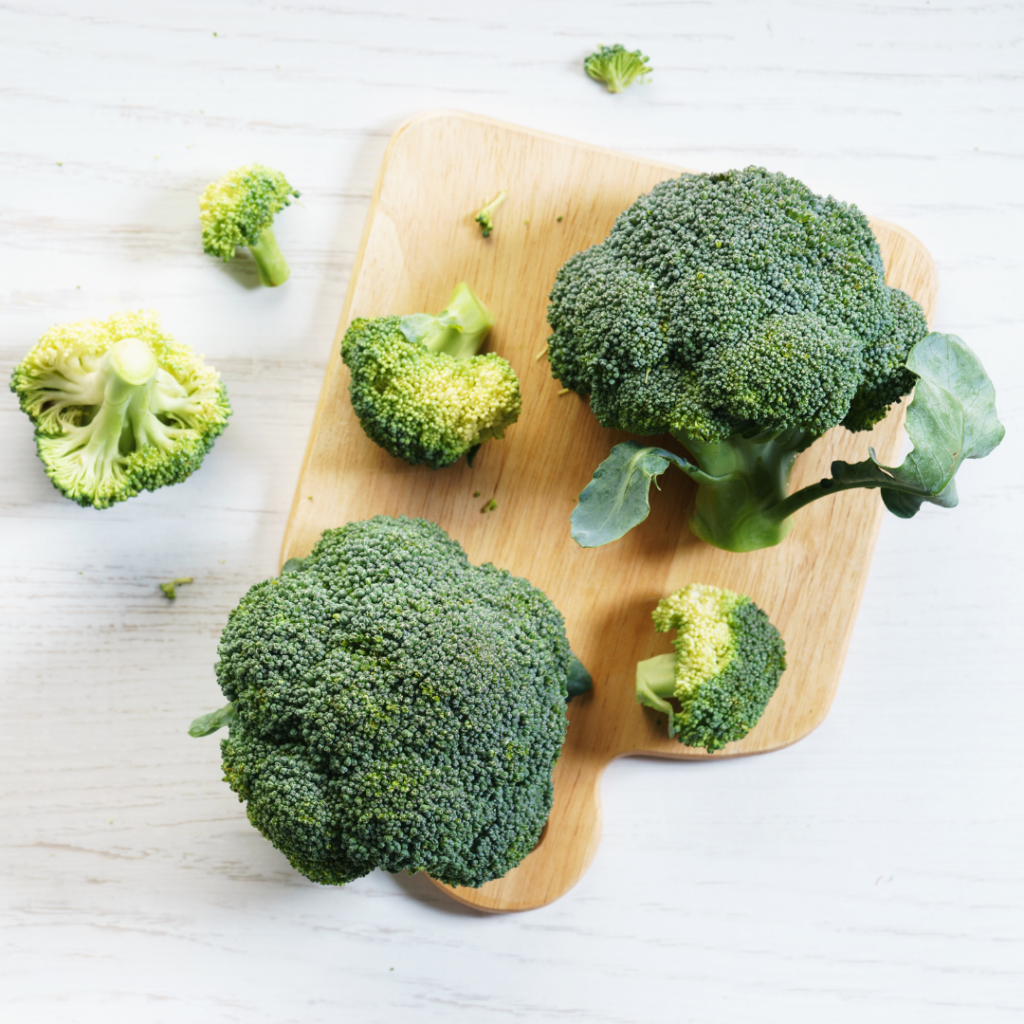
Bountiful Broccoli
Broccoli is a cruciferous vegetable, alongside kale, cauliflower, Brussels sprouts, bok choy, cabbage, collard greens, rutabaga, and turnips. Broccoli is a rich source of vitamins, minerals, and antioxidants. Antioxidants can help prevent the development of various conditions. The body produces molecules called free radicals during natural processes such as metabolism, and environmental stresses add to these. Free radicals, or reactive oxygen species, are toxic in large amounts. They can cause cell damage that can lead to cancer and other conditions. The body can eliminate many of them, but dietary antioxidants can help. Broccoli is a good source of vitamin K, but this may interfere with some people’s use of blood-thinning drugs such as warfarin (Coumadin). People who use these drugs should not suddenly increase their intake of vitamin K-rich foods such as broccoli.
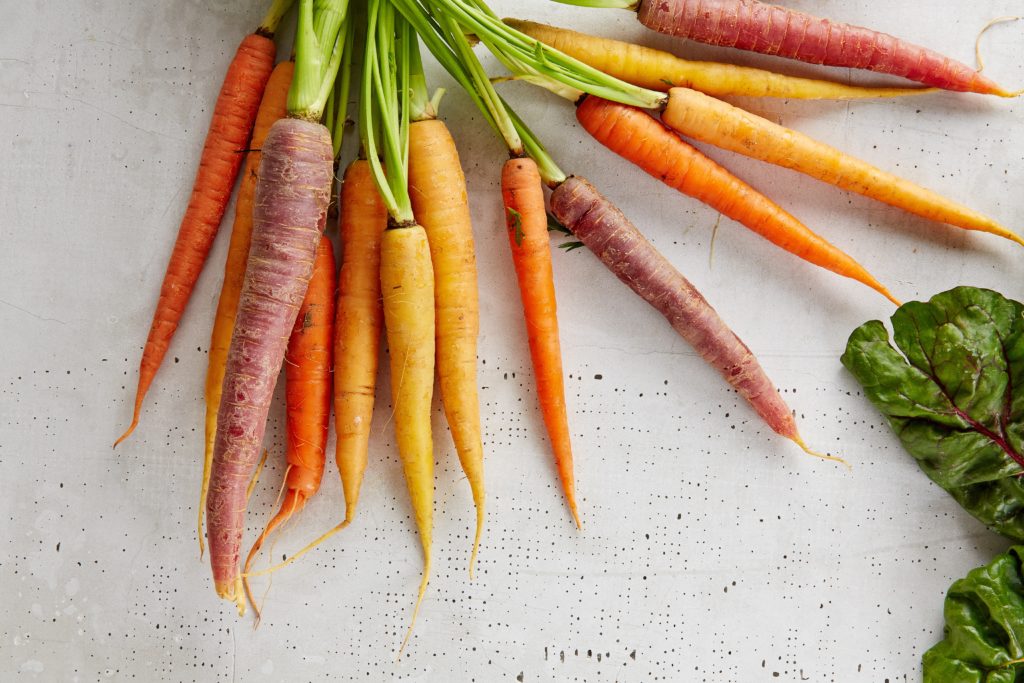
Caring Carrots
Rich in vitamin A, carrots are a great detoxifying agent that removes toxins from the blood and delays aging, keeping you mentally and physically feeling younger. Vitamin A is also important for vision and can prevent night blindness. Carrots are excellent sources of vitamin C, which is the chief producer of collagen, a protein that makes up most of the body’s cells and is an active participant in the cell renewal process. Carrots are also an important vitamin K, vitamin B8, folate, potassium, iron, copper, and manganese. Vitamin K plays a huge role in regeneration by promoting blood clot formation. Folate is a primary component of DNA and is vital for the reproduction and renewal of cells in our body. Ions such as potassium, iron, copper, and manganese can also be found in carrots and are important for our body’s physiological processes, like maintaining normal blood pressure and respiration.
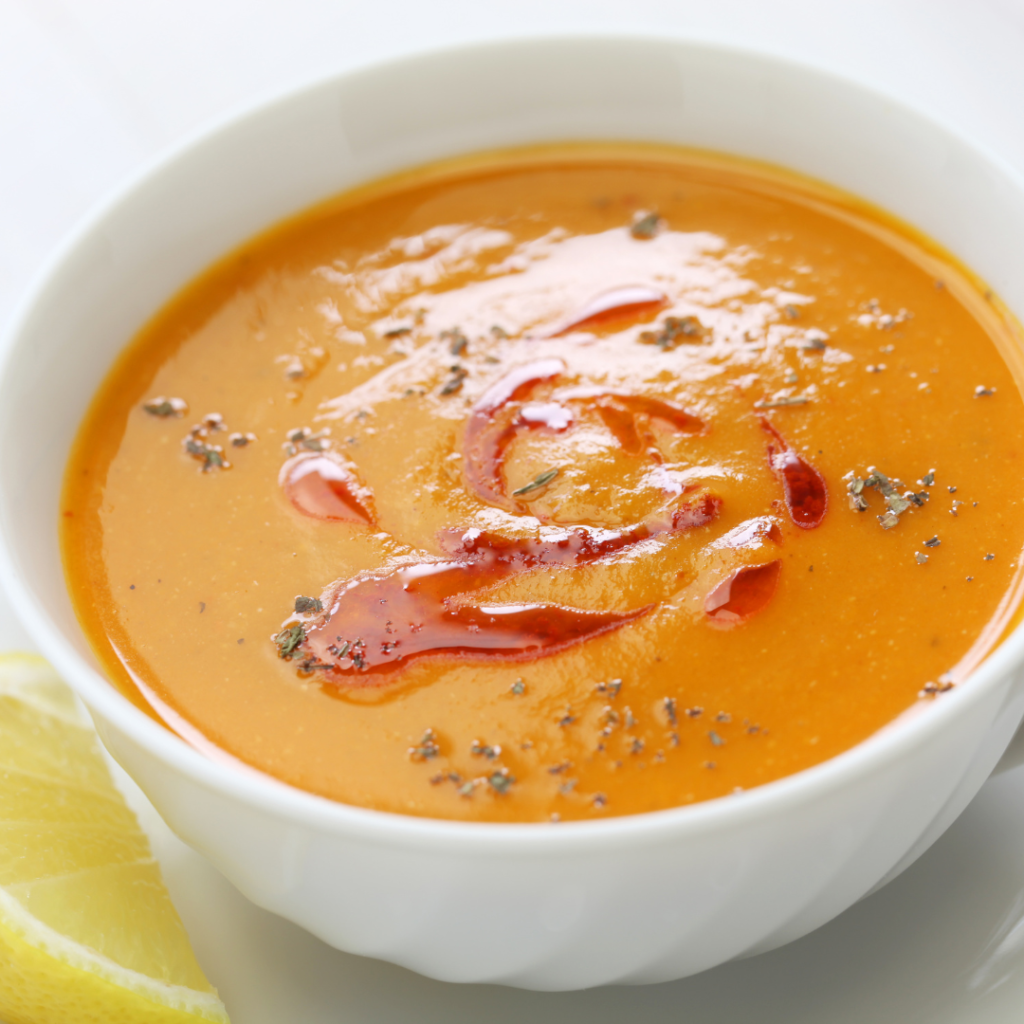
Curried Cauliflower Lentil Soup
Gluten-Free, Vegan, Serves 4
- 2 tsp Olive Oil
- 1 white onion minced
- 2 medium carrots diced
- 1 stalk celery diced
- 2-3 cloves garlic minced
- 1 1/2 tsp minced fresh ginger
- 2-3 tsp curry powder
- 1 head cauliflower cubed
- 4 cups vegetable broth
- 1 pinch cayenne
- 1/2 cup red lentils
- 2 Tbsp coconut cream
- salt and pepper to taste
Directions:
Heat a large soup pot over medium heat. Once hot, add oil, onion, carrots, and celery. Saute for 4-5 minutes, stirring occasionally. Add ginger and garlic and saute for 2-3 minutes or until fragrant. Add cauliflower, curry, cayenne, broth, lentils, and salt. Bring to a low boil over medium heat, reduce to a simmer, cover, and cook for 15 minutes or until the lentils and cauliflower are cooked through. Add the coconut cream and blend with an immersion blender until creamy. Season to taste, and garnish with coconut milk or vegan feta cheese.
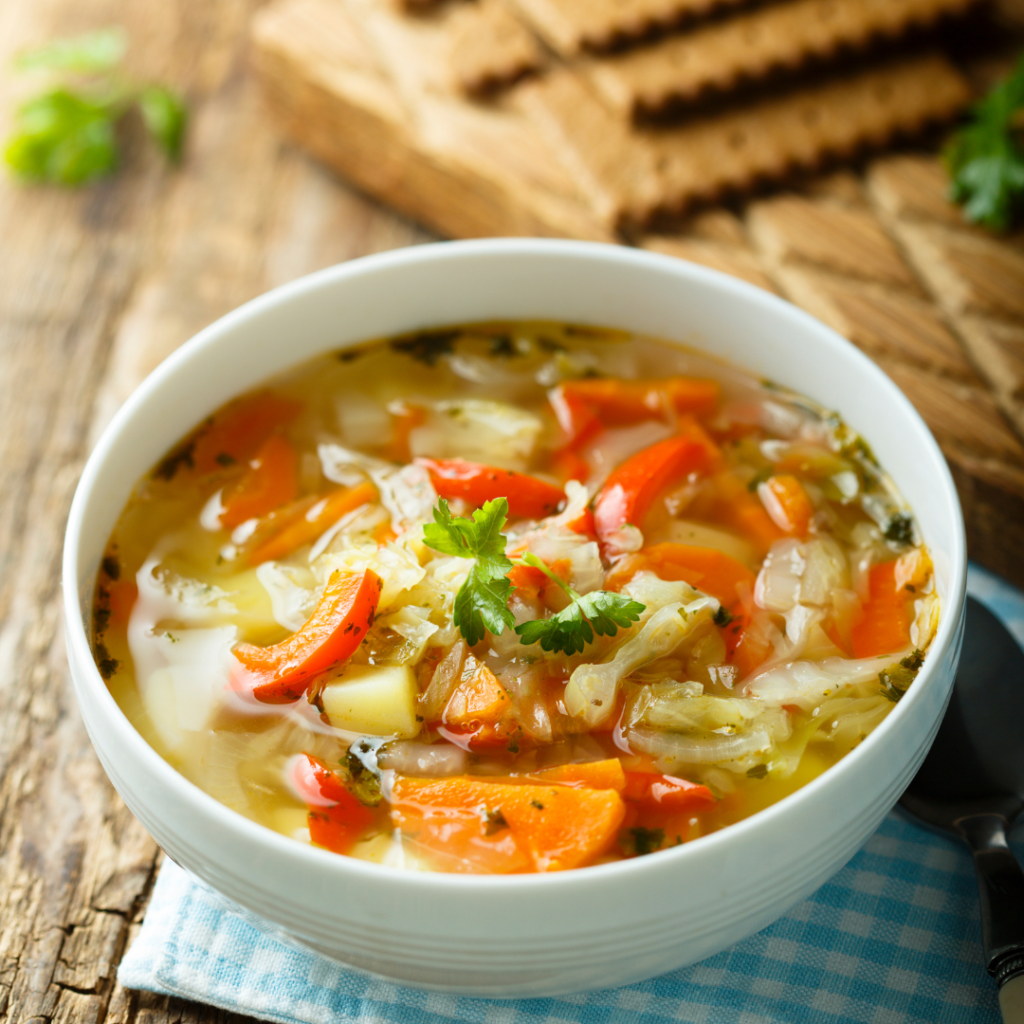
Winter Vegetable Soup
Gluten-Free, Vegan, Serves 4-6
- 2 Tbsp olive oil
- 1 yellow onion minced
- 3 celery stalks diced
- 2 medium zucchini cubbed
- 3 medium carrots diced
- 3/4 cup lentils
- 3 small Yukon gold potatoes cubbed
- 1 cup canned diced tomatoes with juices
- 2 dried bay leaves
- 4 sprigs of fresh thyme
- 5 cups low sodium vegetable broth
- 1 tsp sea salt
- 2-3 cups finely sliced cabbage
- vegan parmesan cheese to garnish
Directions:
Add oil, onion, celery, carrot, zucchini, potatoes, lentils, tomatoes, bay leaves, thyme, broth, salt, and pepper into a slow cooker. Stir together, and cook on high heat for 4-6 hours or until the lentils are tender. In the last hour, add the cabbage. Remove and discard the bay leaves. Season to taste, and serve with parmesan and fresh herbs.
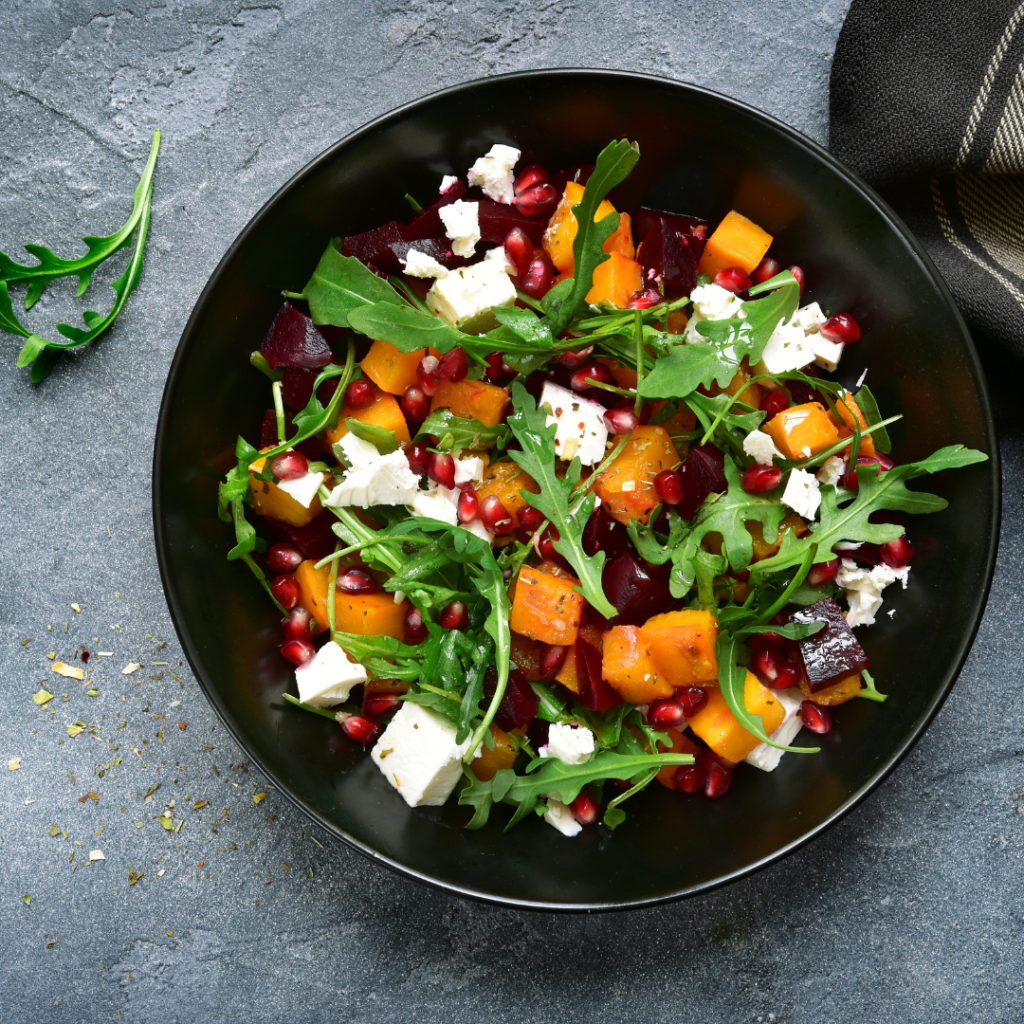
Beet and Pomegranate Salad
Gluten-Free, Vegan, Serves 6
- 6 beets cubed
- 2 Tbsp olive oil
- 1 1/2 cup raw pecans
- 1/3 cup maple syrup
- 6-8 cups mustard greens
- arils from 1-2 pomegranates
- 1/4 tsp cayenne pepper
- 6 ounces vegan gorgonzola cheese
- salt and pepper to taste
Citrus Dressing:
- 1/3 cup olive oil
- 1 Tbsp fig preserves
- 1/4 cup balsamic vinegar
- 2 Tbsp orange zest
- salt and pepper to taste
- 2 Tbsp fresh orange juice
Directions:
Preheat the oven to 400 degrees F. Toss the beets with oil, salt, and pepper. Spread out evenly onto two baking sheets. Roast for 30-35 minutes or until lightly charred and tender. Allow cooling prior to adding to the salad. On another baking sheet lined with parchment paper, add the pecans to the baking sheet and toss in syrup, cayenne, salt, and pepper. Toast for 15-25 minutes, stirring 2-3 times throughout cooking. Remove and let cool prior to adding to the salad. Add the greens to a large bowl. Combine all dressing ingredients. Add the remaining salad ingredients to the bowl, and toss the salad in the dress.
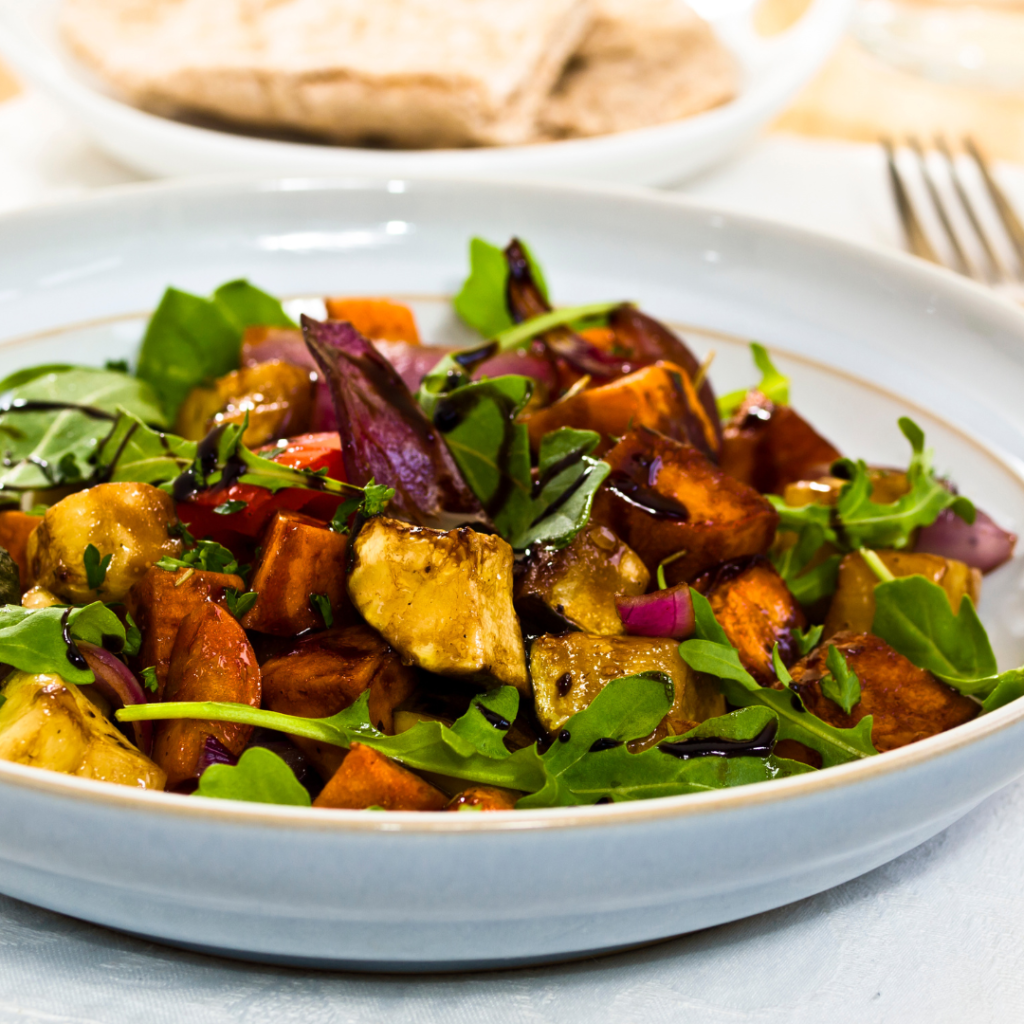
Sweet Potato Arugula Salad
Gluten-Free, Vegan, Serves 6
- 1 cup wild rice, rinsed
- 1/2 tsp sea salt divided
- 2 medium sweet potatoes cubed
- 3 carrots cubed
- 1 1/2 Tbsp olive oil
- 1/4 cup raw pumpkin seeds
- 3/4 cup pecans
- 5 cups packed arugula
- 1/2 cup vegan feta cheese
- 1/4 cup dried cranberries
- Ginger Dressing:
- 2 Tbsp dijon mustard
- 1/2 cup olive oil
- 2 Tbsp apple cider vinegar
- 1 Tbsp date syrup
- 2 tsp fresh ginger grated
- 1 tsp lemon juice
- salt and pepper to taste
Directions:
Cook the rice as directed on the package and set it aside. Meanwhile, roast the carrots and potatoes in the oven at 425 degrees F. Toss the vegetables in oil and season to taste. Roast for 25-30 minutes or until tender, tossing halfway through. Prepare the dressing by combining all the ingredients and whisking until combined. Into a large bowl, combine the arugula, rice, and roasted vegetables and toss. Top with feta, seeds, nuts, and cranberries. Serve the dressing on the side or toss the salad in the dressing prior to serving.
Get Started Today
Keeping your body free of toxins and free radicals is necessary to maintain a healthy life and a healthy mind. You can add tons of foods to your regular diet to help your body with its critical detoxifying processes. If you are looking for a safe and all-natural way to detox your body at home, be sure to check out my Balancing Abundance Program. Because detoxing is so important and realistically, everyone should be doing it on at least a seasonal basis, I have put together a program to help you do just that. Here’s the thing, I know working with me one-on-one can seem difficult to get into (due to limited space), and I wanted to be able to give everyone an additional solution that has no limits. You deserve to be happy, healthy, and successful at everything you do, so here are some recipes to help set you up for success!

Need A Hand?
A happy and healthy life is closer than you may think. We all have to deal with our health daily, which shows when we don’t feel our best. If you are tired of just making it through your day, you NEED to start investing in your health today! You are not alone on this journey. If you need help, I am always here to do that. Even if it is something as small as acting as a sounding board, do you have any questions or concerns I can help you with? Feel free to contact me directly at [email protected] or book a one-on-one call with me. Be sure to subscribe to gain access to tons of free goodies and check back daily for more great recipes and information!

